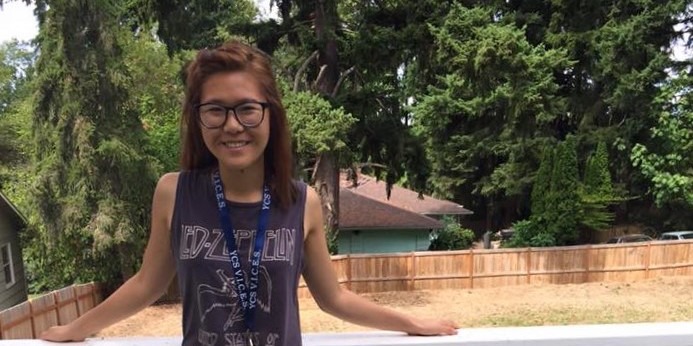“I joined BioE because I really liked engineering, and had a strong interest in being able to control processes of life. At first I thought, ‘I’m going to work with stem cells and help create kidneys and lungs using 3D printing.’ I just wanted to do research so I applied anywhere I could. I joined a protein purification lab and I did a lot of microbio work, so now I’m more interested in developing drugs.
Initially, I thought I was going to be a surgeon. Then I thought, ‘I’m not going to be a doctor, I’m going straight into biotech.’ Now I think I’m going to go for a MD/PhD because I really like the personal interaction that comes with being a physician but I can’t imagine ever giving up research.
I come from an underserved community where people aren’t really told that they can be scientists. As you grow up, you’re in a bubble and you don’t know that other people have it better. So when I did get to college, I realized, ‘Wow I’m so behind in my coursework than these other people who came from more affluent cities.’ And after I realized this, I know that part of my later success is mentoring other students of color who want to join the STEM field. I particularly want to help those from underserved populations because we aren’t told enough that we can achieve that or to even dream. I barely knew what a PhD was or that I could achieve it until I came to UW, since nobody in my community had one. One of my life goals is to create scholarships for underserved students and let them know early on that yes, you can achieve so much. The world is yours for the taking.
I grew up in an environment that strongly discouraged me from pursuing my dream. People told me not to be a doctor because they thought it would be too challenging for me. They also told me to take easier classes because they didn’t think I could do well academically. I tried to do a lot of volunteer work, but was told that I was wasting my time doing things other than studying. I think that’s not true because when you think about why people go to university, it’s because it opens opportunities to further help society. If you’re a doctor, or lawyer or teacher, you have a special skill set that uniquely benefits society. Volunteering highlights that mindset.
I seriously doubted my abilities to succeed in life due to this constant negative atmosphere, so with my newfound freedom at UW I rushed head-on into challenge. I took honors chemistry and wasn’t the best student, but I honestly felt so relieved since I was finally able to live my life for myself. Currently I’m taking five classes, mentoring a group of elementary girls and interning at CIDR this quarter, and I truly love what I do. I think growing up in a repressive environment inadvertently taught me to forget the fear of failure and chase after my dreams whatever the cost.”


